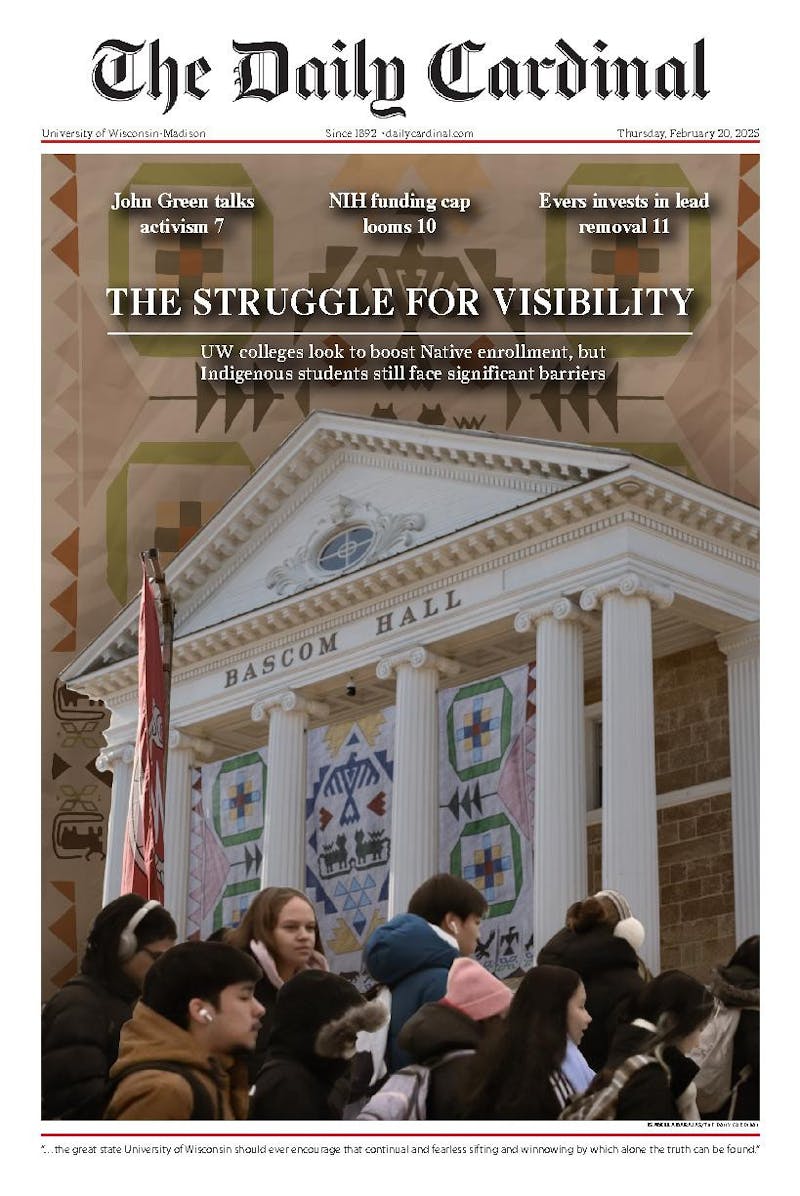President Barack Obama's image-driven 2008 campaign and his use of social media outlets fostered in young voters an interest in public policy rarely seen in today's political climate.
Obama was able to brand himself through campaign slogans based on ideas of change that appealed to dissatisfied voters, particularly the youth.
Unlike Obama's campaign, which was able to cut across age, gender and ethnic divides, most politicians on both a national and local level remain disconnected young constituents.
Stephen Duerst, political relations chair of UW-Madison College Republicans, said many state-level politicians are ineffective at providing information about their position on key state issues, preventing them from connecting with potentially politically interested youth. (Duerst is a Daily Cardinal opinion contributor through the College Republicans.)
Duerst emphasized the importance of using technology to communicate with voters and said while lawmakers in Illinois, New York or Texas may have started online networking, Wisconsin lawmakers remain out of touch with technology-driven youth.
""[Many state lawmakers] don't even have websites,"" he said.
Crystal Lee, chair of UW-Madison College Republicans, said it is also challenging for students to get involved in local issues because many students leave Madison after they receive their degree.
Lee, a political science major and a Minnesota native, said even she found it difficult to connect herself to Wisconsin politics during her first few semesters.
""I dove myself into politics,"" she said. ""Besides knowing who the governor and the lieutenant governor were, I didn't know anything about Wisconsin politics.""
However, a technology-related generational gap as well as student apathy for state politics are only a few factors that separate lawmakers from youth voters.
According to Charles Franklin, UW-Madison political science professor, an ""underlying structural"" problem of low youth voting turnout that stretches back 60 years helps explain the disconnect between lawmakers and young constituents.
""It's irrational for any politician to spend too much time on the groups least likely to turn out to vote, and it makes a lot more sense to go to retirement homes and talk to 65-year-olds who do vote at very high rates.""
Franklin said state lawmakers do create connections with students by providing them with internships, but generally, low youth voter turnout gives lawmakers more of a reason to focus on issues voiced by older constituents.
Molly Rivera, chair of UW-Madison College Democrats, interned at state Rep. Donna Seidel's, D-Wausau, office last summer. She said she was able to sit in on meetings and work on issues that are ""important to students.""
""They were talking about BadgerCare Plus, and our age group was a huge focus of the provisions that were put into the budget,"" she said.
Lee said students rally around other political issues, including education policy and tuition increases, as well as legislation dealing with alcohol, such as the recently proposed increase in the beer tax.
Rivera agreed, stating that students focus on several key issues.
""Student loans and tuition costs, finding jobs, the job economy … I think a lot of these issues that are kind of hot topics affect students disproportionately,"" she said.
Franklin said although students may have some common interests, they are unlikely to make a real impact because of overarching divisions and underlying heterogeneity in opinion that is visible in every voting bloc.
""Everybody complains about tuition. You do agree on that, but that is not something that has produced marches in the streets,"" he said.
Although heterogeneity may make a ""student voice"" less visible, state Rep. Kelda Helen Roys, D-Madison, said it is important for state lawmakers to maintain connections with youth voters.
""I view it as both a responsibility and a privilege to connect with young people and help facilitate their engagement in politics. It wasn't very long ago that we had a lot of people in the Legislature who were in their 20s. Unfortunately, that's not the case anymore,"" she said.
Roys, the youngest member of the state Assembly, said while she doesn't represent the downtown campus, she understands the policies she helps pass are the ones that will affect young voters in the future.
""I do think that young people play a really important role, and [they] should, because they are the people who are going to be around when the policies we are trying to make are in full swing,"" she said.
Rivera said she is optimistic about the future of youth representation in the political process and said she believes state representatives are making themselves more receptive to youth interests.
""In some issues I think they do at least try to reach out to us, but in other issues we are ignored. We try to get their attention. It doesn't always work, but sometimes it does.""





